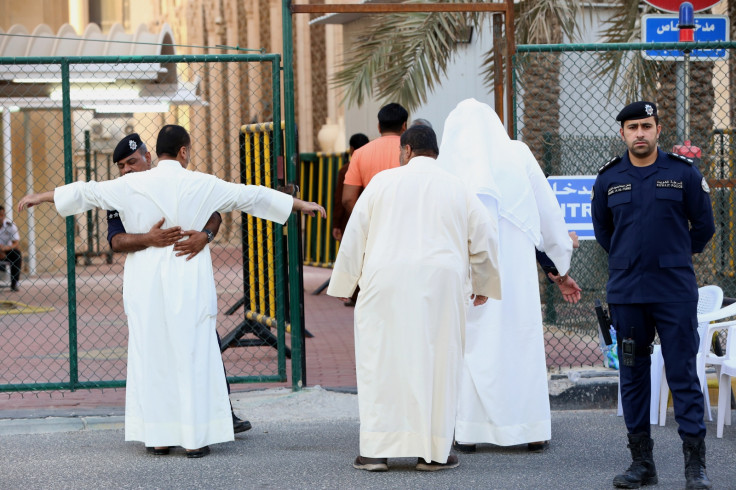Kuwait lawyer challenges constitutionality of world's first controversial mandatory DNA collection law
Attorney Adel Abdulhadi said the law is 'similar to forcing house searches without a warrant'.

A Kuwaiti lawyer has filed a formal constitutional challenge to the country's controversial counter-terrorism law that would require all its citizens, expatriates and temporary visitors to provide DNA samples for the government's database. The Kuwaiti government passed the DNA sampling law in July 2015 - the first of its kind in the world - following a suicide bombing at a Shia mosque in the capital that left 27 people dead and hundreds of others wounded.
The law, which is reportedly expected to go into effect in November, will help facilitate solving crime and terrorism cases, officials said. The DNA samples of over 1.3 million citizens, 2.9 million expatriates and temporary visitors from other countries would be collected via a saliva swab or a few drops of blood and entered into the database to be stored in a lab at the General Department of Criminal Evidence in Dajeej, located about 12 miles away from Kuwait City.
Anyone who refuses to provide a sample could face a year in jail or a $33,000 (£25,200) fine while anyone caught faking samples could face up to seven years imprisonment.
Local attorney Adel Abdulhadi argues that the law violates "fundamental human rights and personal freedoms protected and sacred by the Kuwait constitution".
"Compelling every citizen, resident, and visitor to submit a DNA sample to the government is similar to forcing house searches without a warrant," the attorney Adel Abdulhadi told New Scientist. "The body is more sacred than houses."
Abdulhadi also argues that the law violates Islamic Sharia law which the Constitution of Kuwait is explicitly based on, according to a statement released on Wednesday (21 September).
"As a person subject to this law, I've decided personally, and with my law partners, to launch this challenge," he said.
Scientists and security experts have also voiced their concerns over the plan, calling it a "huge attack on genetic privacy" and urging the Gulf nation to amend the law.
"Compulsory DNA testing of all citizens and visitors sounds like an Orwellian nightmare, but this is the new reality in a wealthy Gulf state," geneticist Olaf Riess wrote in the New Scientist last week. "Kuwait has become the first country to order blanket genetic sampling – a worry on so many fronts. What happens if the DNA database is hacked? And even if the current government can keep the database secure, what might happen in the event of a regime change?"
Earlier this month, the European Society of Human Genetics also wrote a letter to the prime minister and the council of ministers of Kuwait calling on the government to amend the law, saying it is "a serious assault on the right to privacy of individuals, and is also likely to lead to the isolation of Kuwaiti scientific research and researchers".
The United Nations' Human Rights Committee and the Human Rights Watch also urged the country to change its course saying it "imposes unnecessary and disproportionate restrictions on the right to privacy".
While many have questioned the law's ability to prevent terrorist attacks, many activists and experts have expressed concerns over the use of the law as a way to determine paternity in a country where adultery is a punishable offence or identify illegal immigrants. Residents seeking the country's extremely restricted citizenship are required to trace their paternal bloodline back to the original Kuwaiti settlers in 1920.
"They might be using the idea of genetic testing as some sort of smokescreen, and actually they're just going to test people who are from Bidun families and take their citizenship away," Julia Harrington-Reddy, head of equality and inclusion at the Open Society Justice Initiative, told Fusion.
Kuwait officials, however, said the DNA database will only be used for criminal security purposes and will not affect personal freedom and privacy or be used to test lineage.
© Copyright IBTimes 2025. All rights reserved.





















